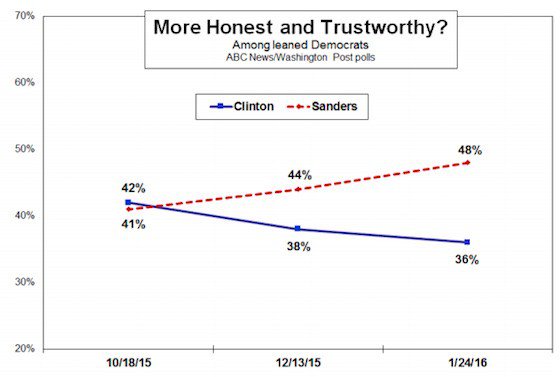Road #4 it is. Thanks Nate:
Road No. 4: Cruz beats Trump, and Rubio does well
If both Cruz and Rubio have strong nights in Iowa, however, the meaning is clearer: Trump didn’t live up to the hype. There would be questions about whether Trump’s support in polls was a mirage to begin with, whether it had collapsed at the last minute because of voter dissatisfaction with his having skipped the Republican debate, or whether his lack of a turnout operation had foiled him. Those questions would be important for determining whether Trump had a chance to recover in New Hampshire. But in terms of the media narrative, they’d all be variations on the theme that Trump had gone bust.
In some ways, the Republican primary might even start to look fairly conventional. An “outsider” candidate with evangelical support would have won Iowa. A couple of “insider” candidates would be looking to emerge out of New Hampshire, with Rubio having a leg up because of his strong Iowa showing. Trump wouldn’t necessarily disappear — the media will keep writing him into the plot so long as he is willing — but it might be as more of a Newt Gingrich-esque sideshow, a candidate who wins a few states here and there but has little chance of commanding a majority. If we enter Iowa in a Trumpnado and exit it with what seems to be a fairly normal Republican race, that might be the biggest surprise of all.



 EMS
EMS 









